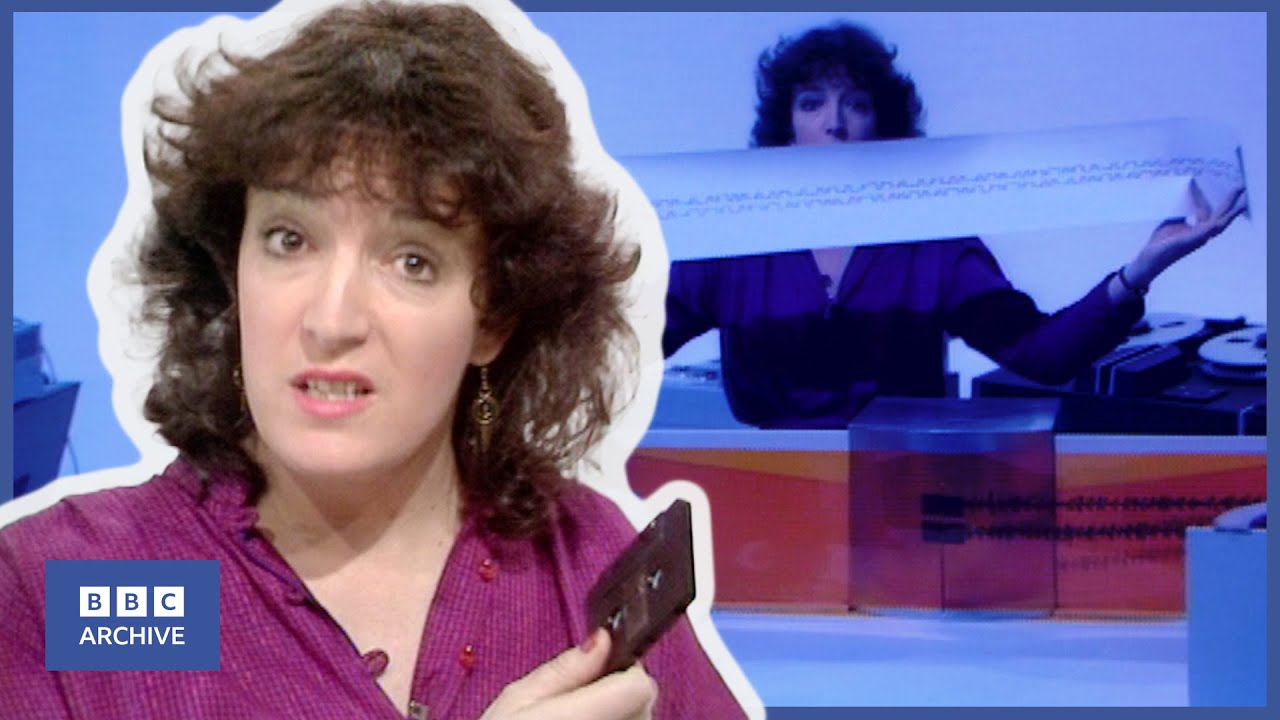I watched this earlier this week when Techmoan posted a link on his YouTube channel. I don’t remember ever seeing this before but it does make me wonder if this is why Philips thought that DAT wouldn’t take off and it would be possible to work with this (apparently a JVC device although it’s not clear from the video) and make something better.
Apparently the device in the video recorded in PCM using 8 tracks* on metal tape (it has big letters “PCM” on it). If the metal tape was audio grade, it would necessitate running the tape at about 20x normal speed to get the 176400 bits per second per head on there without loss. DCC of course works at the same speed as analog cassette, because PASC allowed a 4:1 compression.
*The model shows an 8 track head, but it’s well possible that the model shop at the BBC misunderstood what the vendor had told them and it really stored 8 tracks per side. I think I remember Gerard Lokhoff telling us that the 9th track was added by Philips to make it possible to go from one track to the next. The cassette that’s shown in the BBC video appears to be double-sided anyway but of course that could still have been under development.
===Jac
Checked in with Gijs Wirtz (conceptual inventor DCC format) from Philips and he has never seen the video either. He did say that there were quite a few similar like this. After CD, a lot of inventions surfaced based on cassette. Philips did not allow any of these formats on cassette, as (as Jac already mentioned) the speed needed to be ultra high among various other concerns.
It’s possible that those letters on the prototype machine are “DCM” (Digital Cassette Machine?) rather than “PCM” – the only time we get a good, close-up look at them, part of the first letter is cut off the side of the screen, and the rest of the time the video is too soft-focused (and probably multi-generation-lossed) to tell. ![]()
Still, if it really did record using nothing more than standard PCM encoding, and required the tape to run at 20x normal speed, it seems like it would’ve been fairly useless for classical music (or much of anything else) since a C90 cassette would only give you 2.25 minutes (2min 15sec) of recording time per side at that speed. Even if they had dared try to release an equivalent to the C180 – which was unreliable enough at normal speed, so I can’t imagine it being even remotely usable at 37-1/2 IPS! – that still would only get you 4.5 minutes, or about the capacity of a 7" 45RPM single.
My guess is that the explanation was somewhat simplified for the BBC viewing audience, and that there was something more going on under the hood. Is it possible that JVC had devised some kind of data-compression scheme already, but it just proved to be too difficult and expensive to implement in a mass-producible form given the state of microprocessor technology at the time?
No doubt. I wondered if the part where they show a model that has 8 tracks was also an over-simplification or misunderstanding between the representatives of whatever company made this, and the BBC workshop techs who made the model, and there really were 8 tracks for each side. There’s simply not enough information.
It’s very well possible that when this was recorded, they had already solved some of the obvious problems. Using video tape instead of audio tape would be an obvious improvements that would increase the density by quite a lot (reducing the required speed), and maybe they used a stack of video heads to record the digital audio too, who knows. And maybe they were already working on inventing some sort of data compression (lossy or not). Or maybe they used 8 bit PCM or ALaw/uLaw (G.711) which is still regarded as “PCM” and is pretty old (it was invented by Sun for telephony in the 1970s).
Even if it would ever be possible to track down who made this, whatever became of the developments (I’m sure they would have some questions for the Philips legal department once Philips came up with the idea of DCC), etc, it would probably still be difficult or impossible to find out what the status of this was at the time that the video was made.
So many questions and speculations that will probably never be answered.
===Jac
